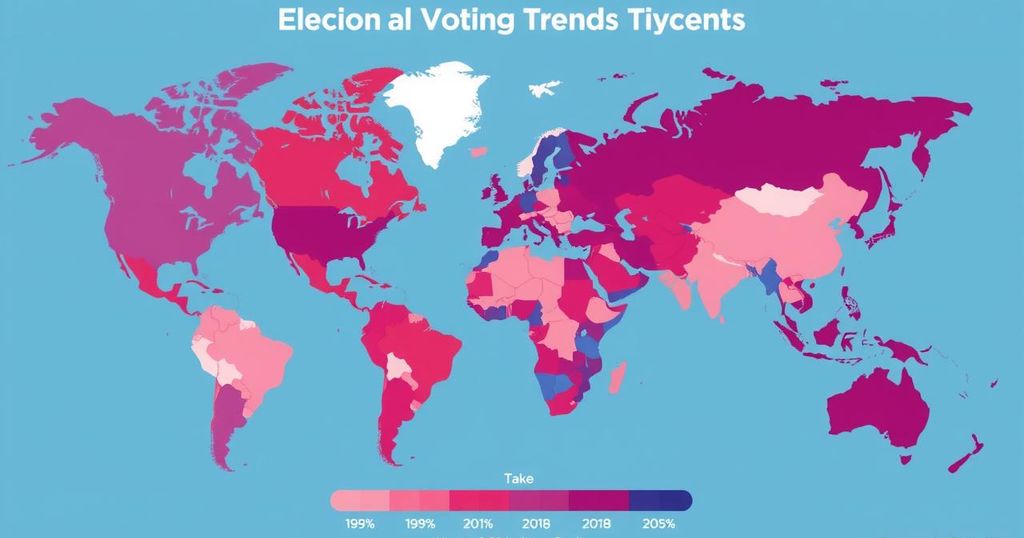In 2024, more than 70 countries held elections, covering half of the global population. India led with 637 million voters, while Rwanda boasted a 98.2% turnout. Various leaders were re-elected or replaced, reflecting diverse political dynamics. The outcomes indicate a mixture of continuity and transformative changes, underscoring the evolving nature of global democracy.
In 2024, over 70 countries engaged in pivotal elections impacting approximately half of the global population, totaling around four billion individuals. Notably, India led voter participation with over 637 million ballots cast, marking its largest democratic exercise to date, while other significant countries such as the United States, Indonesia, and Pakistan also held crucial elections. Voter turnout varied dramatically across nations; Rwanda achieved an exceptional 98.2% turnout, contrasting sharply with Tunisia’s dismal 28.8%. Various global leaders were re-elected or newly appointed amidst pressing socio-political dynamics, indicating diverse responses to governance, democracy, and electoral integrity. The outcomes reflect global trends of political continuity in some regions, while others welcomed significant changes, with discussions on human rights, allegations of electoral manipulation, and the persistent influence of populism dominating the electoral landscape.
The article discusses elections held in 2024 across more than 70 countries, encompassing a broad demographic representation. It highlights the collective voter participation and illustrates the varying degrees of democratic engagement globally, particularly focusing on voter turnout rates and the implications of the electoral outcomes. With an emphasis on notable leaders and their political fates, the analysis provides insights into the complexities of governance and electoral politics in contemporary society. The information serves as a comprehensive overview of the electoral climate, showing how global sentiments are shaping political landscapes and citizen engagement in governance.
In summary, the 2024 elections across numerous countries showcased a rich tapestry of political activity, with significant implications for governance and civil rights. While some leaders maintained their positions amid controversies, others faced unprecedented shifts reflecting public sentiments and demands for change. As the world witnesses these electoral events, the results reinforce the importance of observing voter behavior and political trends that continue to shape the global socio-political landscape.
Original Source: www.aljazeera.com






